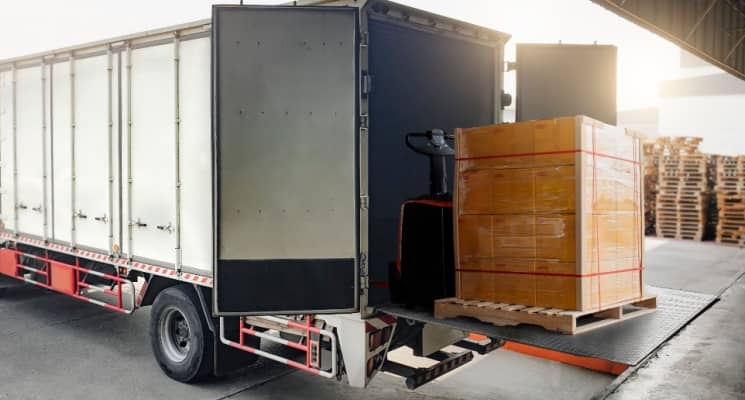Relocating internationally often ranks among the most stressful experiences a family can undergo. Families move internationally maybe once or twice in their lives, and as a result, when we do have to move, the types of moving options, and the quotes we get, can get all too confusing. We’ve covered quite a few of these topics on our blog to help you make your choices easier.
In this article, we will shed some light on the difference between “Groupage” vs. “LCL” international shipments so that you can make a more informed decision when selecting an international moving company in Abu Dhabi.
Let’s take an example, say you are moving your two-bedroom fully furnished apartment internationally from the UAE to the UK. The surveyor who has just visited your home will most likely recommend that you ship your items with a Full Load Container (FCL), given the size of your move. This is the most common option for sea shipments and the process of transporting such a container is pretty straightforward.
But, what if you are moving only a few items from your house which is not enough to fill a whole container? In that case, you have two options for your goods to be sent by sea: LCL (Less than Container Load) and Groupage. Each of them is a secure method of household goods transportation and is more cost-effective than booking a full container load. To help you select your best option, we’ve summarized the differences between each, with their pros and cons:
LCL (Less than Container Load)
LCL is a wooden crate (known as a lift-van) that is fabricated to fit the size of your goods and secure them throughout the transportation process. Often moving companies will pass your shipment to a 3rd party – a freight forwarder – who collects several lift-vans to load a full container and transports it to the destination port. Upon arrival, the third party will remove your goods from the LCL container, and hand over your goods to your Moving Company’s agent who will clear the goods from customs and deliver them to your residence.
Pros:
- The freight forwarder will have regular containers leaving, normally every week, which allows a moving company to estimate the transit time and approximate delivery date.
Cons:
- The freight forwarder acts as a middleman and his own charges at the destination can be pricey.
- The need to load goods into wooden crates (‘lift-vans’) will typically lead to additional costs.
- Once packed goods are loaded into lift-vans the volume increases as much as 15-20% and charges are based on the gross (crated) volume.
Groupage (a.k.a. Consolidation):
If a moving company has multiple shipments moving to the same area/region it makes sense to co-load these shipments into a single 20ft or 40ft container. Your goods will be picked up by a moving provider and remain in their warehouse until the company collects other small shipments to be combined into one container. The container is then sealed and shipped directly to the port of entry. Goods are consigned and cleared from customs individually upon arrival and delivered to each residence.
Pros:
- This is more cost-effective than LCL because the cost of the freight/transport and other major costs are spread proportionately.
- There is no third party, so no exorbitant third-party handling charges.
- There is no need to use lift-vans, which means a lower chargeable volume.
- The moving company has full control of the loading, handling, and routing of the container.
Cons:
- Timing. The container leaves when it is full (or almost full). This can add several weeks to the door-to-door transit.
In other words, if you are flexible with your time and the arrival of your goods is not urgent, Groupage is definitely the best option. It is safe and cost-effective. However, if you need the goods within a specific time frame and don’t mind paying extra then choose the LCL option, but make sure the moving company is transparent about all the associated costs.
Start your relocation by getting quotes from international movers in Abu Dhabi right here.







